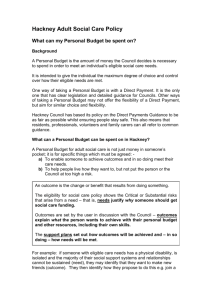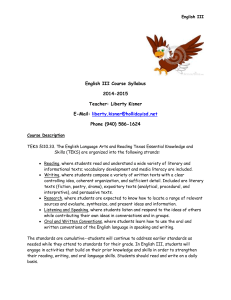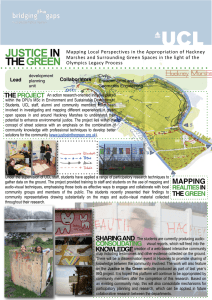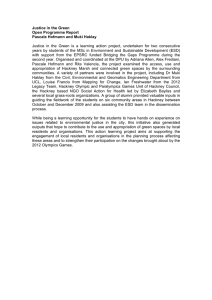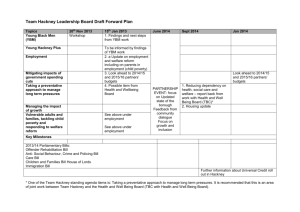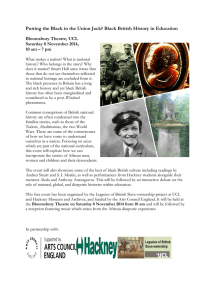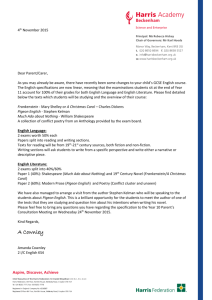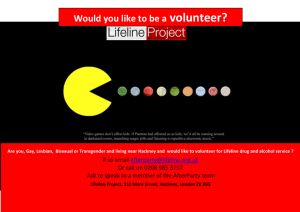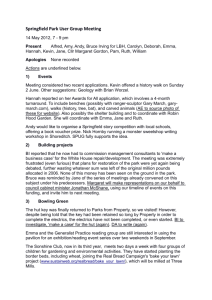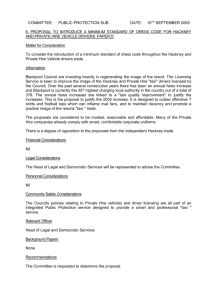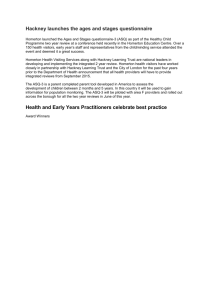English KS3 Curriculum Plan 2014-2015
advertisement
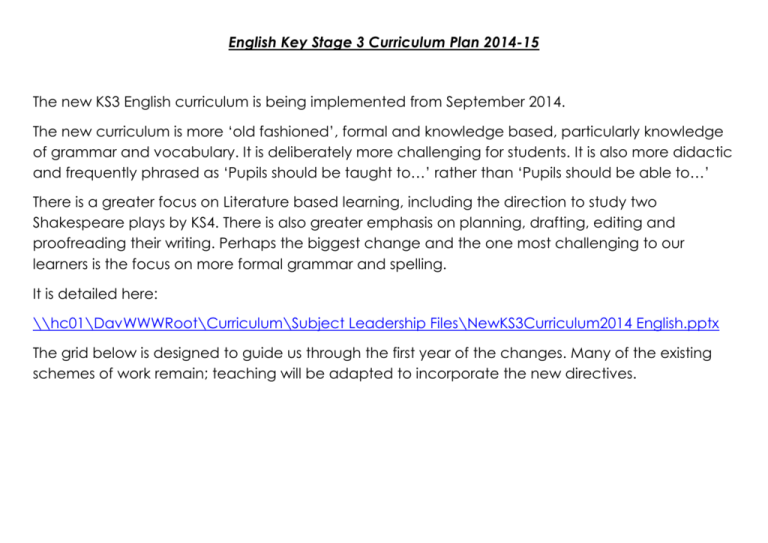
English Key Stage 3 Curriculum Plan 2014-15 The new KS3 English curriculum is being implemented from September 2014. The new curriculum is more ‘old fashioned’, formal and knowledge based, particularly knowledge of grammar and vocabulary. It is deliberately more challenging for students. It is also more didactic and frequently phrased as ‘Pupils should be taught to…’ rather than ‘Pupils should be able to…’ There is a greater focus on Literature based learning, including the direction to study two Shakespeare plays by KS4. There is also greater emphasis on planning, drafting, editing and proofreading their writing. Perhaps the biggest change and the one most challenging to our learners is the focus on more formal grammar and spelling. It is detailed here: \\hc01\DavWWWRoot\Curriculum\Subject Leadership Files\NewKS3Curriculum2014 English.pptx The grid below is designed to guide us through the first year of the changes. Many of the existing schemes of work remain; teaching will be adapted to incorporate the new directives. Over the Key Stage every student should cover the skills required: = Introduced 2 = Developing 3 Covered in Depth Year 9 Hackney stories Hackney – Non fiction Hackney - TV Show Presentation Hackney - Short Novel Hackney Viewpoints World Of Shakespeare Entry Level Stories Entry Level Poetry Entry Level – World of Work Macbeth Year 8 Texts For Information Story Writing 1 Harry Potter 1 Harry Potter Frozen Planet Programmes of Study Auto/biography Year 7 = Reading Read a wide range of fiction and nonfiction, including whole books, short stories, poems and plays with a wide coverage of genres, historical periods, forms and authors Pre-1914 and contemporary prose, poetry and drama 2 2 2 3 3 2 2 2 plays by Shakespeare Seminal world literature Choosing and reading books independently (Includes DEAR) 2 2 3 3 3 3 make inferences, referring to evidence in the text 1 1 2 2 3 3 Novel – Dog In The night Novel – Dog In The night 1 know the purpose, audience and context for writing Recognise a range of poetic conventions Analyse writers’ language choices Study plot, setting and characterisation Understand how the work of dramatists is conveyed through performance Make critical comparisons between texts 1 1 2 2 3 3 1 1 2 2 2 3 2 2 3 2 2 2 3 3 3 3 1 1 Writing Write well-structured formal and narrative essays 1 Write stories, scripts, poetry and other imaginative writing 1 A wide range of other narrative and nonnarrative texts, including arguments, personal and formal letters Summarise and organise material Apply growing knowledge of vocabulary, grammar and text structure to their writing Draw on knowledge of literary and rhetorical devices to enhance the impact of their writing Plan, draft, edit and proof-read 1 1 1 1 1 1 2 2 2 2 3 3 3 3 1 1 2 2 3 3 1 1 2 2 3 3 2 3 2 Grammar Extending and applying grammatical knowledge learnt at KS2, including approaches to spelling, punctuation and sentence structures. Includes intervention, SNIP and LEXIA. Study effectiveness and impact of grammatical features in texts 1 1 2 2 3 3 Draw on knowledge to improve the impact of their own writing 1 1 2 2 3 3 Know and understand the differences between spoken and written language, and use Standard English confidently 1 1 2 2 3 3 Spoken Language Make speeches and presentations Take part in formal debates and structured discussion Improvise, rehearse and perform play scripts 1 1 1 1 1

